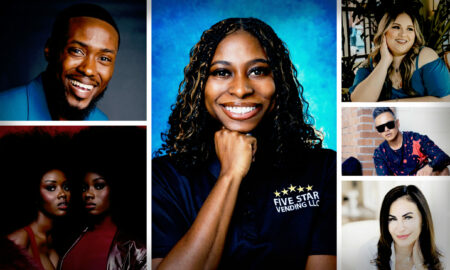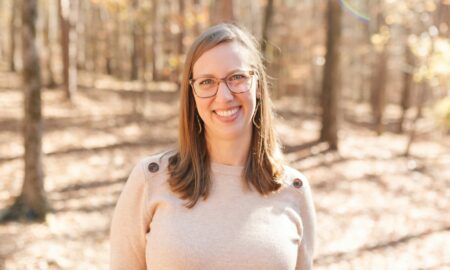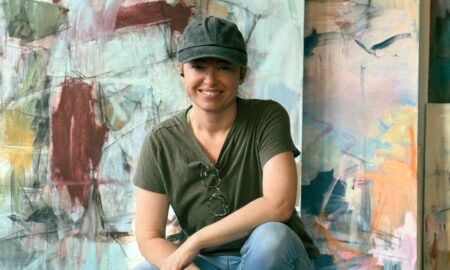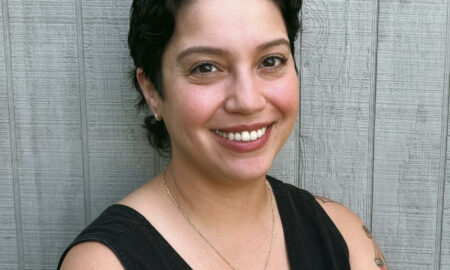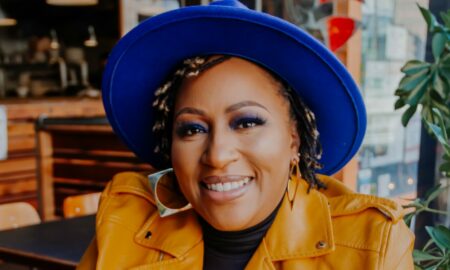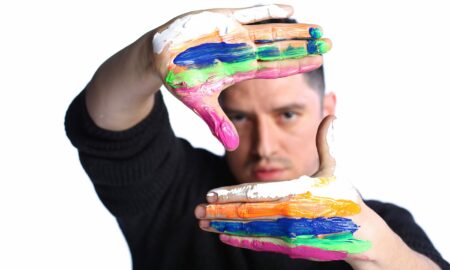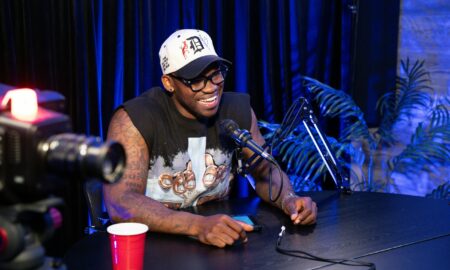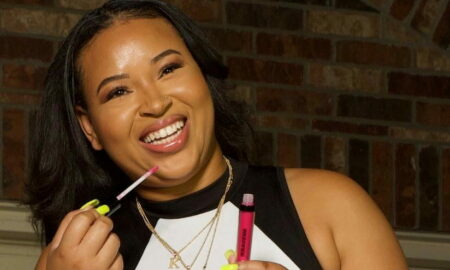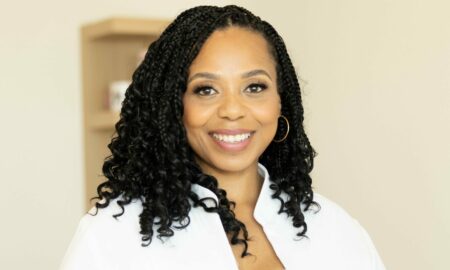

Today we’d like to introduce you to Corrie Harris.
Thanks for sharing your story with us Corrie. So, let’s start at the beginning and we can move on from there.
My story really started when I became the Director for La Villa Familia Nicaragua (VFN), an orphanage in Tipitapa, Nicaragua just north of the capital city Managua. One day in the summer of 2006 my husband, Chris, told me there was a job opening at the orphanage where I had visited a while back and fell in love with the children. We had talked about living a purposeful life for years and working at an orphanage was a lifelong desire of mine. There was an immediate and time-sensitive need at VFN. I could not believe what I was hearing when he asked me, “Why not us? Why not now?”
So we went. It was a frantic rush to get visas, sell our house and vehicles, and transition to a new lifestyle and culture with our two young children. We sold or gave away almost everything we had back in America. On Christmas Day 2006, my family of four flew to Nicaragua. We only had the things in our suitcases and we could not speak Spanish. The normal preparation advisable for such a move was waived under the circumstances facing the orphanage.
We didn’t know what to expect. It was crazy, it was scary, it was risky and so fulfilling. I could write a novel about what it was like living in Nicaragua. We coined a phrase called “Nica-strong” because of the fortitude we witnessed in the people there. Our time in Nicaragua was like a series of vignettes each one, in its own way, had a profound impact on me and my family. I am proud of the work I did at the orphanage in Nicaragua. Chris and I made a lasting impact on them, and they transformed us.
In 2008, my contract with the orphanage came to an end and it was time to come back home. I spent the next year as Director living state-side acting as a support to the leadership we had raised upon location. In the summer of 2009, that was completed. They were more than capable of running the center without my coaching.
Throughout the work there, questions kept popping up in my mind, “What if we could get to the root of the issues that were creating orphans? What if we could help stop the train wreck that produced these scared, broken little fighters that were delivered to our doorstep straight off the dangerous streets or plucked from the inhumane conditions of slums? What if there was a cure to poverty like a cure to cancer? I just needed to find it.” What I did not know I was looking for was regenerative development practices which is what I am doing at the Hunt Institute as the program manager.
We’re always bombarded by how great it is to pursue your passion, etc – but we’ve spoken with enough people to know that it’s not always easy. Overall, would you say things have been easy for you?
Readjusting to life state-side was almost more challenging than learning how to live in Nicaragua. Getting into a role similar to what I was doing at VFN was like winning the lottery. Most non-profits have a very small staff that work in the same field for years. In addition, a minimum of a master’s degree was required if I were going to apply for an organization like the Hunt Institute. So, I enrolled in Collin County Community College in the Fall of 2009 in remedial math to jump start my brain on the long journey to earn my degrees. I juggled re-entry for our family while getting an education, managing my husband’s business, and working. They were respectable jobs but, they were not where my heart was.
Seven years later with an MA in Sustainability and Development from SMU, I heard of a job opening for the program director at the Hunt Institute. This was my opportunity! Dr. Eva Csaky, the Executive Director of the Institute was my advisor for my master’s thesis, so she knew me and what I was capable of doing. I went through the layers of interviews and by some miracle, I was selected.
So let’s switch gears a bit and go into the Hunter & Stephanie Hunt Institute for Engineering & Humanity story. Tell us more about the business.
The Hunt Institute itself is a unique concept. As far as we know, we are the only Institute that focuses on poverty alleviation through regenerative development that is housed within an engineering school. The pairing of humanities and engineering is unconventional, but it’s important. Engineers are the people who will come up with the nuts and bolts solutions to the major humanitarian crises that plague our generation both locally and globally. Sustainable food systems, resilient infrastructure, and inclusive economic development are our three main categories of focus.
The unique, multidisciplinary partnership between humanities and engineering ensures that the Hunt Institute is coming up with innovative solutions and shaping our future leaders to think along these lines; engage with the end-user, look at the problem through their eyes, partner with experts to form multidisciplinary teams, and approach the solutions with a “Why Not?” attitude. If you fail, identify that as a positive feedback that eliminates one more thing that will not fix the problem. Share that failure so others learn and help with improving the issue. Keep looking, keep refining, keep asking questions, and don’t stop developing because we are the change that is needed; we cannot wait for someone else… be that somebody.
I absolutely love working at the Hunt Institute. I get to do the work that I’m passionate about, I get to work with brilliant students, Fellows, staff, industry partners, and faculty members. I get to have a hand in designing the programming for how the Hunt Institute operates. Most importantly, I am learning, designing, and implementing regenerative development best practices. Dr. Csaky often says with a laugh what sets me apart is keeping all the balls in the air. I have come to know the vital importance of time management and time blocking in order to juggle what often feels like an overwhelming parade of tasks if I do not pace myself.
I am very systematic and have checklists for my checklists. My day-to-day changes depending on what is going on at the Hunt Institute. Sometimes I’m working as a project manager juggling multiple projects or research teams, then I work on facilitating our events, other times I’m planning a communication strategy with our external affairs team that are made up of some of the most talented top-students from various degrees in a variety of disciplines. I also prioritize spending time meeting with our Institute students to mentor them and stay on top of the progression of their education coupled with internships and experiential learning to make them more competitive for the top jobs in their field. Not to mention, traveling to conferences relating to our work, speaking on panels, or writing about what we do.
Currently, I am researching sustainable cities and habitat working toward fulfilling the requirements for enrolling in the Ph.D. program in Anthropology. I am a life learner. I love learning and improving myself so I can be better in all that I do. Reversing the effects of poverty through regenerative development means removing obstacles by developing solutions that help make accessible basic needs (food, shelter, water, and so forth) that people need for a quality of life without compromising their culture and history. In order to achieve those results, I need to earn a Ph.D. to achieve expert level in development.
Has luck played a meaningful role in your life and business?
The dichotomy of luck is an interesting thing. Sometimes it feels like it has no role, other times it feels like it is in control. I believe in the principle of the law of attraction, of “karma”, and you reap what you sow. I also believe bad things happen to good people and visa versa. In my life, I have seen the hand of God save me from situations when I look back I am amazed I survived. Other times, I feel like I just tripped into an opportunity or the perfect person for the job we were missing just walked through the Institute door. I still thank God anyway. Gratitude is important.
Networking is also important. People know people and experts have great wisdom. In a way, I believe we make our own luck while depending on those around us to do the right thing. I am governed by compassion and at the same time guarded enough to stay in balance (sometimes).
I also believe, there are times when my greatest lessons were born out of what one could consider “bad luck.” It is in the hard times that what we are made of rises to the challenge and we can see our strength and what is lacking in ourselves. Sometimes, dusting off from getting knocked face down with a sucker punch has forced me to stare a little harder in the mirror and ask myself how I contributed to what lead up to that situation. At times the answer was painful, and others it was I did nothing, it was just life.
This I do know: good or bad luck, it is not what happens to us that counts, it is what we choose that defines us.
Contact Info:
- Address: 3145 Dyer Street Dallas, TX 75205
- Website: smu.edu/HuntInstitute
- Phone: 214-768-3360
- Email: caharris@smu.edu






 Image Credit:
Image Credit:
Alissa Llort, Laura O. Graham
Getting in touch: VoyageDallas is built on recommendations from the community; it’s how we uncover hidden gems, so if you know someone who deserves recognition please let us know here.

